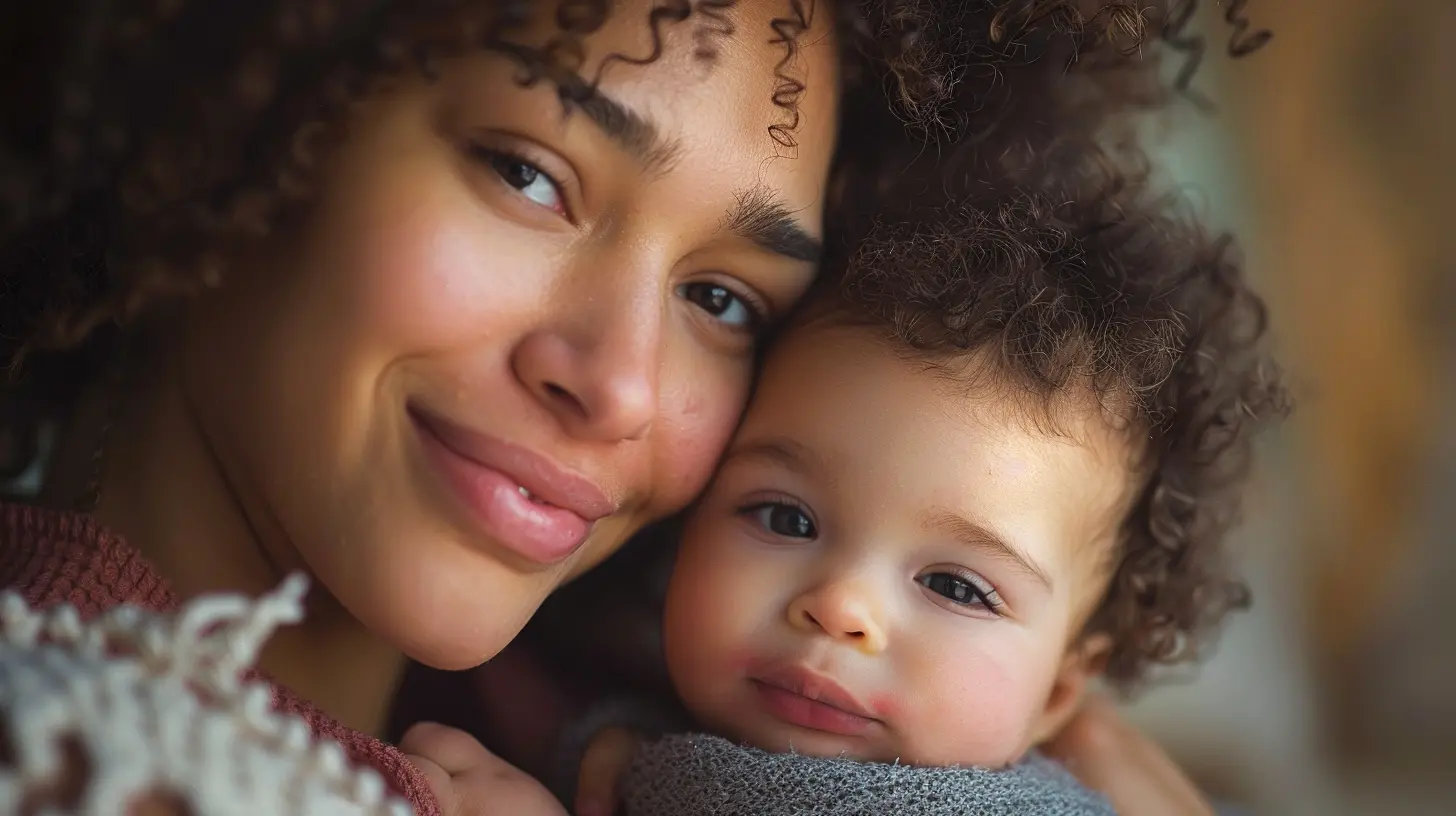Raising a Child in a Blended Family: Tips for Success
20 November 2025
Blended families are becoming more and more common — and they’re beautiful in their own unique way. Whether you’re newly remarried, engaged, or moving in together, raising a child in a blended family can be both heartwarming and, let’s be real, a bit of a rollercoaster.
You’ve got different parenting styles, emotional baggage, and sometimes, a full cast of characters — step-parents, step-siblings, exes — all trying to navigate this new family blueprint. So, how do you raise a happy, well-adjusted child in the midst of all this? How do you make it work?
Let’s dive into some real, honest, and practical tips for raising a child in a blended family — while keeping your sanity and love intact.
What Is A Blended Family Anyway?
Before we jump into the tips, let’s get clear on what we mean by a "blended family." A blended family, sometimes called a stepfamily, forms when one or both partners bring children from previous relationships into the new union. That could mean just one child, or a whole Brady Bunch scenario.Now, that sounds simple on paper. But emotionally, it’s anything but basic. Relationships don’t reset just because two people fall in love. Kids might struggle with loyalty conflicts, feelings of loss, or uncertainty about where they belong. So yeah, it takes work.
Tip #1: Start With Patience — Lots of It
If there’s one thing you’re going to need in buckets, it’s patience.Blending a family doesn’t happen overnight. Kids may resist the new parent. Siblings may clash. Everyone’s trying to figure out their place. Think of it like planting a garden — you don’t see flowers overnight. You water, wait, and trust that things will bloom in time.
So, be gentle. Especially at first. Children may need time to warm up to the new dynamic, and that’s okay. Let them express their feelings without judgment.
Quick Thought: Would you want someone telling you how to feel about a stranger moving into your house? Probably not.
Tip #2: Build Respect First, Not Love
Hollywood movies have us thinking that everyone will share a tearful hug after dinner and BAM — instant family. But in real life, love might not come right away. And that’s okay.Instead of pushing everyone to “love each other,” start by building mutual respect. You're laying down the foundation for love to grow.
A step-parent shouldn’t try to replace a biological parent. Kids usually don’t respond well to that. They might even see it as a threat. Start with kindness. Get to know them. Be involved, but not overbearing. Respect is a two-way street — walk down it together.
Tip #3: Keep Communication Wide Open
Communication is your new best friend.And not just with your partner — though that’s super important — but with the kids, too. Talk openly (but age-appropriately) about changes. Encourage questions. Make space for feelings.
You don’t have to have all the answers. Heck, sometimes just saying “I hear you” goes a long way.
Also, don’t assume silence means acceptance. Kids might be bottling emotions or confused about how to bring things up. Create a safe space where they know it’s okay to talk — and that their words matter.
Tip #4: Establish “New” Family Traditions
Traditions are the glue that helps families feel connected. When you’re building a blended family, start fresh with some new traditions that belong to everyone.Sunday pancake breakfasts? Family movie night? Game night? Something simple, but consistent.
That doesn’t mean throwing away old traditions. Respect what the children bring from their old routines, especially if those traditions carry emotional value. Blending isn’t about erasing — it’s about including and expanding.
Tip #5: Present a United Front With Your Partner
This tip is gold.Behind closed doors, you're figuring each other out — different parenting approaches, discipline styles, even bedtime routines. It’s normal to disagree. The trick? Don’t take those disagreements to the battlefield of daily parenting.
Kids notice when parents aren’t on the same page. And guess what? They’ll find the cracks and push right through them.
So, hash it out privately. Choose your battles. But when you step out into the family arena, do it as a team. United. Always.
Tip #6: Don’t Skip One-on-One Time
Here’s a secret: kids need to feel seen. Especially in a blended family where attention might feel divided.Whether you’re the biological parent or step-parent, carve out one-on-one time with each child. Take them out for ice cream. Go for a walk. Just sit and chat during bedtime.
Those moments say, “You matter. I see you. I care about you.” And isn’t that what we all want deep down?
Tip #7: Don’t Badmouth the Ex — Ever
This one’s a non-negotiable.Even if your partner’s ex or your own ex makes co-parenting feel like a root canal without anesthesia — don’t vent about them to the kids. Keep the adult drama out of their emotional space.
Children internalize stress and conflict. Hearing bad things about their other parent can lead to guilt, confusion, and divided loyalties. Protect their wellbeing by modeling grace, even when it’s hard.
Real Talk: You don’t have to like the ex, but you do have to show your child what respect looks like.
Tip #8: Embrace the “Awkward Phase”
Spoiler alert: blending families can feel awkward — like wearing someone else’s shoes at first.Maybe the teenager gives you the silent treatment. Maybe your partner’s toddlers call you “Mr. Steve” instead of “Dad.” It’s normal to feel like an outsider in your own home for a bit. That doesn’t mean it’ll stay that way forever.
Give it time. Lean into the awkward instead of fearing it. Eventually, those shoes will feel more like your own.
Tip #9: Set Clear Boundaries and Roles
Boundaries aren’t walls — they’re fences with gates. And in blended families, you better have a good fence.What are the step-parent’s limits when it comes to discipline? What rules apply across all the kids? What role will the biological parent play? Getting clear on roles helps prevent resentment and confusion.
And hey, boundaries work both ways. If a child isn’t ready for hugs or deep talks, respect their space. Let trust develop organically.
Tip #10: Therapy Isn’t Just for “Problems”
Let’s normalize therapy, shall we?Family counseling can be a huge help — not just when things go wrong, but to keep things going right. It’s a safe space where everyone gets to voice their thoughts and have them heard.
Don’t wait until things hit the fan. Think of therapy like emotional maintenance. Like an oil change for your family dynamic.
Tip #11: Celebrate the Small Wins
The first time your step-child laughs at your joke — win.The first time they ask you for help — win.
The first time everyone sits through dinner without someone storming off — BIG win.
Celebrate these moments. They might feel small, but they’re stepping stones on the path to a thriving blended family.
Tip #12: Be Gentle With Yourself
Last but definitely not least — give yourself some grace.Raising kids is hard. Blending a family is even harder. You’re going to make mistakes. You’re going to get things wrong. You might cry in the bathroom sometimes (we’ve all been there).
It doesn’t mean you’re failing. It just means you’re human.
What matters most is your intention. If the heart is there — if you’re showing up, listening, loving — you’re doing better than you think.
Final Thoughts: It’s Not Perfect — And That’s Okay
Blended families aren’t perfect. But neither are traditional ones. What they can be is full of love, rich with growth, and deeply meaningful.Yes, it takes effort. Yes, it takes empathy. Yes, it’ll stretch you in ways you didn’t expect.
But if you lean into the messiness, communicate with honesty, and lead with love, you’ll build a family that may not look like everyone else's — but will be beautiful just the same.
Because at the end of the day, family isn’t just about shared DNA. It’s about showing up. Every day. Together.
all images in this post were generated using AI tools
Category:
Parenting TipsAuthor:

Tara Henson
Discussion
rate this article
1 comments
Tate McCallum
Ah yes, because merging two families is as easy as blending a smoothie—just toss in some love and hit ‘blend’!
November 30, 2025 at 5:20 AM

Tara Henson
Absolutely! Blending families takes patience and understanding, much like perfecting a smoothie!


